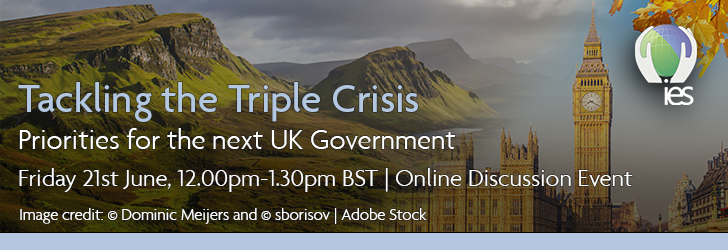Environmental challenges are deeply interconnected and must be addressed holistically to identify successful solutions. At the core of many of these challenges, the triple crisis of climate change, biodiversity loss, and environmental pollution will require significant action on a global scale.
The recently announced UK General Election will provide a new opportunity to revisit key environmental policy discussions where intervention is required for the benefit of society, the economy, and the environment. After the election, there will be a short yet crucial window of opportunity to engage with policy makers to solve environmental challenges and co-create a sustainable society where people and nature thrive.
This free online discussion event, hosted by the Institution of Environmental Sciences, will consider the key issues that the next UK Government should prioritise from the perspective of environmental science. The event will give IES members and the wider sector a chance to feed in to the IES's policy work after the current UK General Election. It follows 6 focused discussions on land condition, education, climate change, policy delivery, water, and clean air, bringing together those discussions and considering other key priorities for environmental science.
This is a non-political discussion and will not be a platform for engaging with or influencing voters. Attendees will be advised to avoid anything that could be interpreted as support for a political party or candidate.
Engaging with policy makers
This is one of seven events helping IES members to engage with issues arising from the UK General Election and providing the opportunity to influence policy makers during the early days of the next parliamentary term. For more information, see the announcement and our events on land condition, education, climate change, policy implementation, water, and clean air.
Priorities identified by IES members during these discussions will directly facilitate IES engagement with the next UK Government, though they will not be used to engage with political manifestos, or with specific parties, candidates, or constituencies.


